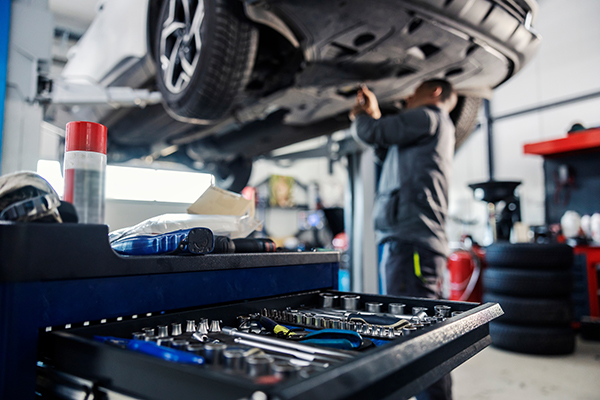
Transmission fluid plays a crucial role in the operation of your vehicle's transmission system, acting as both a lubricant and coolant to ensure smooth gear shifts and prevent overheating. However, the presence of transmission fluid leaking from your vehicle can be a cause for concern, indicating potential issues that require attention.
Transmission fluid is a specialized lubricant designed to withstand high temperatures and pressures within the transmission system. It serves multiple purposes, including lubricating gears and bearings, cooling transmission components, and facilitating smooth gear shifts.
Detecting a Transmission Fluid Leak
Transmission fluid is typically red or pink in color, allowing for easy identification. You may notice puddles of fluid forming under your vehicle when parked, or you may observe low transmission fluid levels upon checking the dipstick. Additionally, you may experience symptoms such as slipping gears, delayed or rough shifting, or transmission overheating, indicating a potential fluid leak.
Common Causes of Transmission Fluid Leaks
There are several potential causes of transmission fluid leaks, each requiring specific repairs to address:
1. Damaged Seals or Gaskets
Over time, seals and gaskets within the transmission system may deteriorate or become damaged, leading to fluid leaks. Common culprits include seals around the transmission pan, output shaft, input shaft, and axle seals. Repairing or replacing damaged seals and gaskets is essential to prevent further fluid leakage.
2. Worn Transmission Pan Gasket
The transmission pan gasket seals the transmission pan to the transmission housing, preventing fluid leaks. Over time, the gasket may deteriorate or become damaged, resulting in fluid leaks. Gasket replacement is a common repair to address fluid leaks originating from the transmission pan area.
3. Loose or Damaged Transmission Lines
Transmission fluid is circulated through the transmission system via metal or rubber transmission lines. If these lines become loose, corroded, or damaged, fluid may leak from the connections. Tightening or replacing transmission lines is necessary to prevent fluid leaks and ensure proper transmission function.
4. Cracked or Damaged Transmission Housing
In rare cases, cracks or damage to the transmission housing itself may result in fluid leaks. This can occur due to impact from road debris, excessive heat, or improper maintenance. We can repair or change the damaged transmission housing to prevent fluid leakage and maintain transmission integrity.
5. Faulty Transmission Cooler
Some vehicles are equipped with a transmission cooler, which helps regulate transmission fluid temperature. If the transmission cooler develops leaks or malfunctions, transmission fluid may leak externally or mix with other fluids, such as engine coolant. Fixing the faulty transmission cooler is necessary to prevent fluid leaks and ensure proper transmission operation.
Addressing transmission fluid leaks requires identifying the source of the leak and performing the necessary repairs. This may involve replacing damaged seals, gaskets, or transmission lines, tightening connections, or repairing the transmission housing.
By understanding the causes of transmission fluid leaks and taking proactive measures to address them, you can ensure smooth shifting and optimal performance for miles to come. If you suspect a transmission fluid leak in your vehicle, don't hesitate to consult with a qualified mechanic at Complete Automotive for diagnosis and repair. Drive with confidence, knowing that your transmission is well-maintained and leak-free.